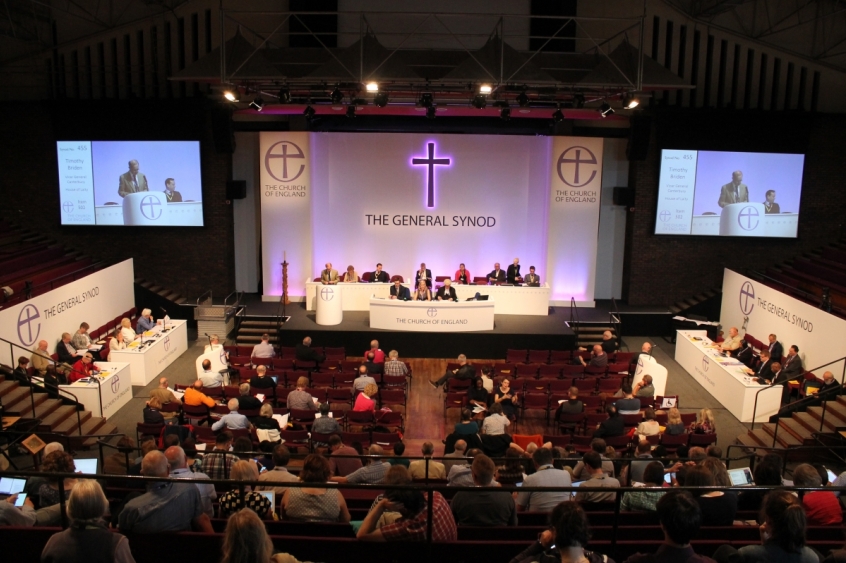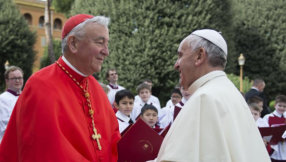The Church of England has embraced plans for unity with the Methodist Church, possibliy ending 200 years of schism that began with John Wesley in the 18<sup>th century.
The plans for a 'new relationship of being "in communion"', which have yet to be approved by the Methodist conference, centre on allowing priests and presbyters to ministers in each other's churches.
Despite warnings that the moves were 'controversial' and 'threaten the fundamentals' of the Church of England, its ruling general synod passed a report taking the plans for unity forward by an overwhelming majority.

The Archbishops of Canterbury and York both backed the proposals, which will go before the Methodist Conference in the summer.
Christopher Cocksworth, the Bishop of Coventry, who led the group behind the plans, said the proposals 'work towards healing a tragic division in the Church of England that John Wesley fought hard to avoid and brought such anguish to his brother – a tear in the fabric of our church'.
He added the next phase of unification works towards ending 'the scandal of the body of Christ being divided'.
Rev Ruth Gee, a former Methodist president, told the synod that while the suggestions were a 'profound and challenging development' they would be considered openly by the Methodist Conference in the summer.
'It is a matter of deep sadness for me, and I believe for many of you, that our churches are not in communion with one another,' she told the synod.
Rev Gareth Powell, secretary of the Methodist Conference, said both churches 'have an all to easy acceptance of the scandal of disunity'.
He added: 'Complacency in the face of our disunity hinders not only mission, but impairs; our witness to Christ; our ability to live in the image of God; and be effective channels of the Holy Spirit.'
It means that British Methodists are a step closer to having their own bishops for the first time. The 'president' would become a 'president bishop' and all future Methodist presbyters would by 'ordained' by this bishop.
The particular difference between the two churches lies around their understanding of how churches should be led. Anglican churches operate under an episcopal model with bishops seen as following on from the apostles, as the Church's leaders. As bishops consecrate more bishops and ordain new clergy, the 'apostolic succession' continues.
However Methodists do not accept the idea of 'apostolic succession' in the Anglican sense.
But now under the proposals an Anglican bishop would take part in ordaining new Methodist ministers, meaning they would enter this 'apostolic succession'.
However the nub of the controversy and opposition lay around existing Methodist presbyters who would not have to be re-ordained – a point the CofE's bishops consider a 'bearable anomaly'.
Anglican Catholic Future, a network of Anglo-Catholic parishes across England, previously said: 'Simply having people called bishops exercising a ministry of oversight does not mean that we understand the same thing by that term.'
'We have already witnessed the painful impairment of communion over the ordination of women,' added. 'The proposals contained in the report, which (as they are currently described) threaten the fundamentals of what it means for our Church to be catholic as well as reformed. In light of this, a unified and public catholic witness is called for.'
But regardless of the warnings synod members largely spoke in favour of the plans to bring the two churches closer together and backed the plans by 290 - 59 with 24 abstentions.













